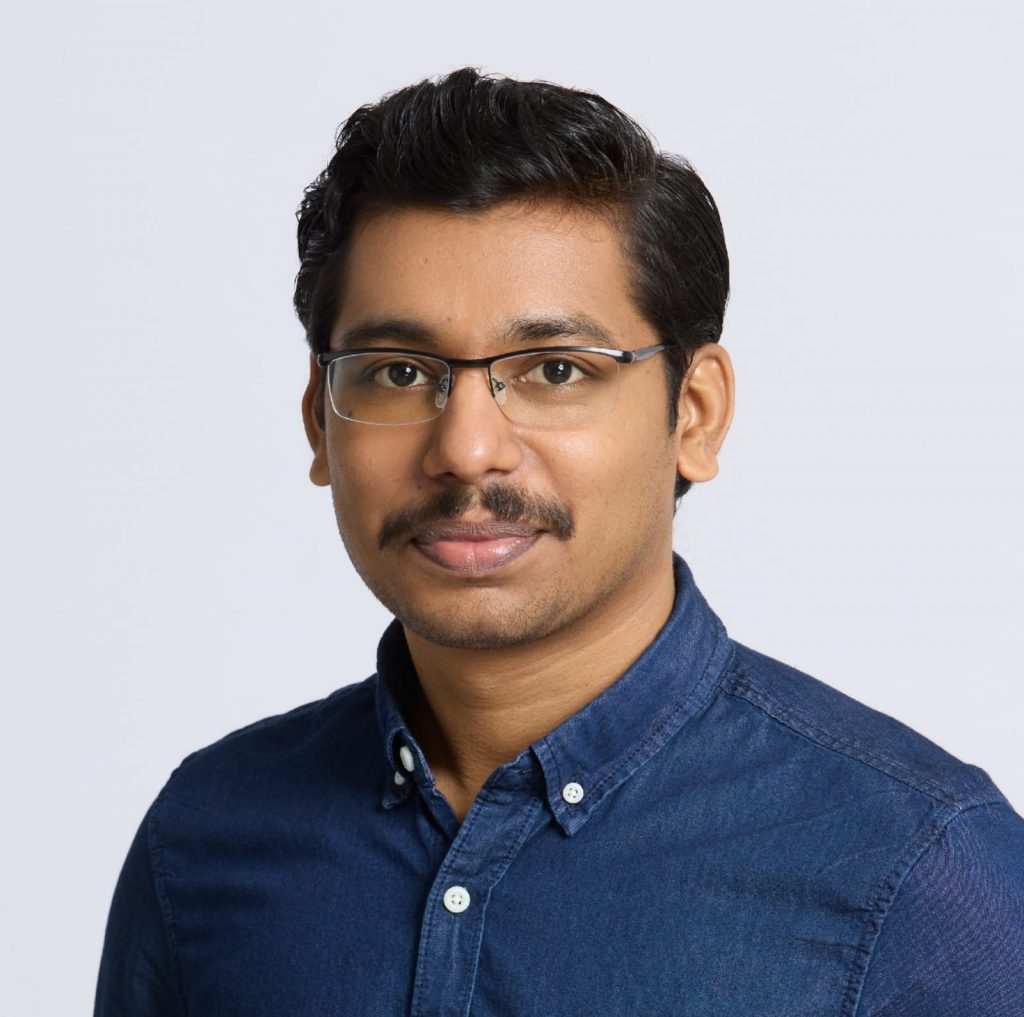Interview with Rajesh Panhathodi

Rajesh Panhathodi is a soon-to-be MPhil graduate in the School of English. His research focuses on the depictions of transnational migration from India to the Middle East in cartoons/comics. In his recently-submitted thesis, Rajesh explores the themes of transnationalism, identity, and the complex interplay of emotions within the context of comics.
How long have you been at HKU and what is your project about?
In 2021, I embarked on my MPhil journey at HKU, and I am happy (and relieved!) to have recently submitted my thesis. Throughout my research, I have delved into the realm of cartoon and comic representations of transnational migration from India to the Middle East, commonly referred to as the Gulf. The primary objective of my project is to shed light on the lesser-known genre of “Gulf migration comics” and to analyse their visual and textual content. Additionally, I aim to establish connections between these comics and other visual migration media, such as films and photographs, in order to create a comprehensive mapping of this subject matter.
What are the major themes in your research?
My academic interests encompass a wide range of subjects related to visuality and transnational mobility. However, I have a particular curiosity for various themes surrounding migration and diaspora. In my thesis, I focus primarily on theories pertaining to transnationalism, identity, and the intricate dynamics of emotions as they manifest within the realm of comics.
How do you see your current work fitting into your future career?
Currently, my work primarily focuses on South India; however, I have plans to expand my research in the future, considering the increasing academic interest in comic studies across Asia. The Indian subcontinent offers a wealth of visual-textual works, presenting immense potential for exploration. Additionally, the field of comics is gaining recognition within academia, with an increasing number of educational institutions now offering minors and even majors in this area. As a result, pursuing a career in academia as a comics scholar within departments such as literature, art history, design, and visual anthropology is a realistic and promising prospect.
Are there any popular publications you would recommend to our readers?
Certainly! I can suggest a few outstanding graphic narratives that delve into the experiences of migrants. One highly recommended choice is Shaun Tan’s wordless graphic novel, The Arrival. Equally captivating is Thi Bui’s The Best We Could Do. The list of such works is extensive! For additional recommendations, please visit https://tinyurl.com/yc5dw668.
I also suggest exploring more general works on comics that offer valuable insights into the medium, such as Understanding Comics by Scott McCloud or Why Comics? by Hillary Chute. For those specifically interested in comics and migration, a recent edited volume titled Comics and Migration would be an excellent starting point.
What aspect of your graduate studies at HKU do you value the most?
The most valuable aspect of my graduate studies at HKU has been the opportunities it has provided. During my second year, I worked as the Editorial Assistant for ASAP Journal published by Johns Hopkins University Press, assisting Dr. Elizabeth Ho, the Editor-in-Chief. I also had the opportunity to be a Research Assistant working with Dr. Rashna Nicholson. These experiences have significantly contributed to my professional growth.
What was the best thing about life in Hong Kong?
Food plays a significant role in my Hong Kong life. It’s a fantastic place to try authentic, mouth-watering dishes. Moreover, the leisurely walks along the promenades and hiking with friends make life in Hong Kong truly memorable.
Outside of writing, what do you enjoy doing?
I am always up for a game of squash, and I try not to miss any local sporting events.
